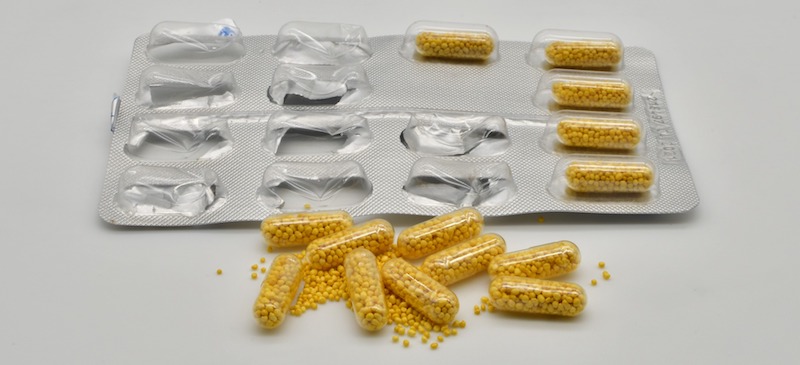The marketing of fake cures and treatments online is nothing new, but the COVID-19 pandemic seems to have bumped this misinformation into overdrive.
Some of these claims are potentially dangerous, including ones about drinking bleach or methanol. The U.S. Food and Drug Administration has also sent warning letters to multiple companies for fraudulently marketing products — such as the Miracle Mineral Solution — as treatments for COVID-19.
Other supposed treatments — including vitamins, minerals, herbs, and other supplements — are less dangerous, but still lack scientific evidence to back up the claims being made by companies and supplement superfans.
However, some of these supplements are being marketed as a way to prevent coronavirus infection, which can lead to people being less cautious about taking steps to protect themselves and others from the virus — things like handwashing, physical distancing, and avoiding close contact with people who are sick.
When writing about supplements, health writers should be careful to provide a balanced look at the science behind these supplements, along with including the appropriate caveats and context. This is always true, but is especially important during a pandemic, when many people are searching online for something that will protect them and their family from the coronavirus.
Here are some tips to help you write more clearly and effectively about supplements.
Be cautious when reporting on observational studies
Observational studies are ones where researchers observe a trend or outcome in certain groups of people, such as those who took vitamin D as part of a research study. However, unlike experimental studies, in observational studies researchers don’t try to control for all of the variables that could affect the outcome.
As a result, observational studies can’t show whether a supplement was responsible for the supposed benefit seen in people who took the supplement. All we can tell is that there is some association between the two. However, it could be that another factor caused the results.
For example, people in an observational vitamin D study who took this supplement daily may have already been healthier for other reasons — such as diet or exercise — compared to those who didn’t take the supplement.
This doesn’t mean that observational studies aren’t important. They are easier, cheaper, and faster for researchers to carry out than randomized controlled trials (RCT), so they can be used to quickly generate ideas that might be further tested in experimental studies. But when writing about observational studies of supplements, it’s important to be clear about the limitations of this type of research.
When writing about supplements, put research in context
Many news sites and health publications report on the latest studies about the benefits (or sometimes the harms) of supplements. Often these studies have just emerged from their embargo period or were recently presented at a conference. While some of these papers have exciting results, no study exists in isolation. That’s just not how science is carried out.
So when writing about supplements, be sure to put the new study in context. This starts by describing the type of research done in the new study — laboratory, animal, observational, clinical trial, etc. — as well as the size of the study. While RCTs are the “gold standard” of clinical research, a study with only 10 people may not be large enough to control for all the possible factors that might affect the results.
Context also means talking about what research has already been done on this supplement, as well as where the new results fit in with what came before. For example, does the new study fit with or contradict those earlier studies? When I interview experts for a story, I almost always ask them this question about the new research.
In addition, you should point out whether a new study is offering preliminary results. For example, has the paper been through a peer review process? Are the results being published before a clinical trial is completed? Is this an abstract or a poster presentation from a conference?
The urgency of the COVID-19 pandemic has led to a greater number of preliminary results being shared — through preprint servers such as medRxiv and bioRxiv — and reported on. But there have also been health news stories based on results leaked from COVID-19 clinical trials, some of which I’ve reported on myself.

Write clearly about the benefits and risks
When writing about supplements, you should carefully describe the benefits that are being claimed, either by the companies selling the product or by researchers who studied the effects of the supplement. What type of a benefit is there? Was it a reduction in symptom severity or an improvement in health markers? What dose of the supplement is required to achieve those benefits? Is that dose something that people could actually take safely?
You should also be wary of companies that claim their supplement “cures” any disease, because that’s not how supplements work — even for the ones that have shown a benefit. Each year the FDA sends many warning letters to companies making these kinds of claims without any scientific evidence to back them up.
In addition, all supplements carry some risk, especially when taken at higher doses and for a longer period. You should clearly describe these risks, including how much of a supplement a person needs to take before a substance is harmful, whether there are certain groups who are at higher risk (or shouldn’t take a supplement) such as pregnant women or people with other health conditions. Herbal supplements, some of which are the basis for pharmaceutical medications, can carry a number of risks.
Disclose funding sources and financial interests
Some supplement studies are funded by companies that manufacture and sell these supplements. While this doesn’t automatically make the results of the study invalid, you should mention this in your story when writing about a supplement. You should also find out what role the funder had in the collection, analyzing, or interpretation of the data. This information is often included in the scientific paper, although it may be in the supplemental material rather than the main paper.
You should also be alert for other financial interests that might create a conflict. For example, does one of the authors of the study have a financial stake in the company that makes the supplement they are studying, or did they receive other financial compensation from the company? This information should be included in the study paper, although it is not always clearly stated.
You should ask the same questions about the people you interview for your story. Does one of your experts also sell the supplements on the side? Are they a social media brand ambassador for the company that sells the supplement? You should always seek comments about the study from an independent expert such as a scientist or nutritionist not involved in the study and with no connection to the company that sells or makes the supplement you are writing about.
Resources for writing about supplements
If you are writing about supplements such as vitamins, minerals, and herbal products, these resources will help you write more clearly and avoid creating hype or adding to the misinformation that is already online.
- Association of Health Care Journalists, Assessing Claims of Functional Foods and Nutritional Supplements, presentation by Bruce Silverglade of the Center for Science in the Public Interest
- Association of Health Care Journalists, Suggested dos and don’ts and resources for reporting on supplements
- HealthNewsReview.org, Journalists need to prune the overgrowth in the jungle of supplement news
- Linus Pauling Institute at Oregon State University has detailed articles about vitamins, minerals, and other nutrients, including a summary of research that has been done on these compounds


